Iranian-American Astronaut Selected To Travel To Space Station

American astronaut of Iranian descent Jasmin Moghbeli has been selected to travel to the International space Station on the Crow-7 SpaceX mission.

American astronaut of Iranian descent Jasmin Moghbeli has been selected to travel to the International space Station on the Crow-7 SpaceX mission.
Moghbeli is a US Marine Corps test pilot and NASA astronaut, born to Iranian parents, and European space Agency astronaut Andreas Mogensen are commander and pilot of the spacecraft, respectively.The mission is expected to launch no earlier than 2023 on a SpaceX Falcon 9 rocket from Launch Complex 39A at NASA’s Kennedy Space Center in Florida.Moghbeli, Mogensen, and the additional mission specialists will join an expedition crew aboard the space station.This will be the first space flight for Moghbeli, who became a NASA astronaut in 2017. She is also a member of NASA's Artemis team and a potential astronaut to travel to the moon. Moqbeli is from Baldwin, New York, and holds a bachelor's degree in aerospace engineering from the Massachusetts Institute of Technology (MIT) and a master's degree in aerospace from the Naval Postgraduate School and a graduate of Naval test Pilot School.
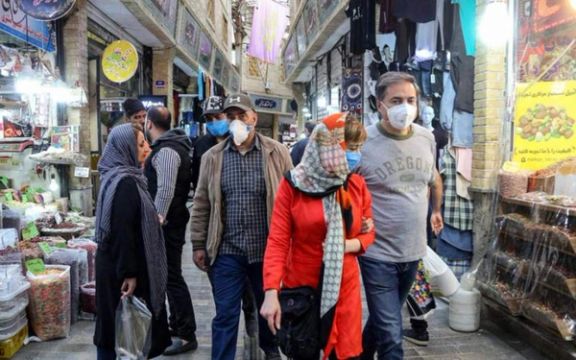
An Iranian lawmaker has warned that reserves of essential commodities are running out and it would be very hard to replenish them given current circumstances.
"Our strategic reserves are finishing, and we won't be able to replenish them," Jalal Mahmoudzadeh, a member of the parliament's Agriculture Committee, told Shafaq News Agency on Friday.
According to Mahmoudzadeh, the war in Ukraine, the government's decision to scrap cheap dollars for importing essential commodities, and mismanagement are the three factors that will affect the availability and prices of essential goods.
Mahmoudzadeh predicted that prices of commodities such as sugar, oil, and rice in the Iranian market will rise considerably in the coming months due to the elimination of subsidies.
Iran decided to end a costly subsidy for importing food and animal feed recently, raising fears of rising prices in the new year that started on March 21. According to a report by ISNA on March 19, out of about $19 billion worth of basic goods imported in the past 12 months nearly $15 billion was subsidized with cheap dollars provided to importers.
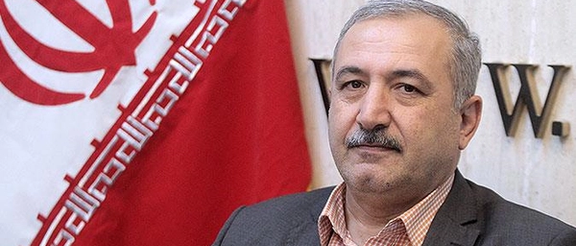
Animal feed, much of the grains imported from Russia and Ukraine with cheap dollars until now would also become scarce and prices of red and white meat will therefore rise considerably, he said. Importers might be jittery about making commitments given the unpredictable foreign currency rates in Iran and government price fixing.
Last week it was announced that Iran’s agriculture minister, Javad Sadatinejad, had signed an agreement during a recent visit to Russia to import 20 million tons of basic goods, including vegetable oil, wheat, barley and corn. The report said the deal is to address concerns about shortages of basic goods and livestock feed in the coming months but did not mention the monetary value of the deal.
Iran is under US sanctions, but the government of President Ebrahim Raisi insists that it has succeeded in blocking their effect on the economy and neutralized the sanctions to a great extent. "The biggest achievement of the government in Vienna [nuclear] talks has been greatly reducing the strategic value of sanctions for the other side through the strategy of neutralizing sanctions," the official news agency (IRNA) wrote Friday.
Recent news about higher oil exports coincides with the most critical phase of indirect nuclear talks that the Biden Administration started with Iran almost a year ago. If talks fail, sanctions will continue.
Reuters reported on February 10 that daily illicit shipments of crude oil had surpassed one million barrels a day in the previous two months. This was the highest since May 2019 when the Trump administration imposed full sanctions on Iran’s oil exports.
Between May 2019 and late 2020, Iran’s clandestine oil exports hovered around 200,000 bpd, or 10 percent of its sales before Donald Trump withdrew from the Iran nuclear agreement, JCPOA, and imposed sanctions. The exports increased in 2021, but it is not clear how much cash revenues Iran receives, given the illicit nature of the shipments primarily going to China.
Oil exports may have increased but the government coffers appear to be still empty. The value of rial remains near its all-time lows at 260,000 to the US dollar, while liquidity keeps rising as the government prints more money.
Just before the Iranian New Year earlier this week, for the first time in over four decades, the Islamic Republic's government failed to make the monthly payments of millions of pensioners. Payments had regularly been made even during eight years of war with Iraq (1980-1988) under difficult conditions.
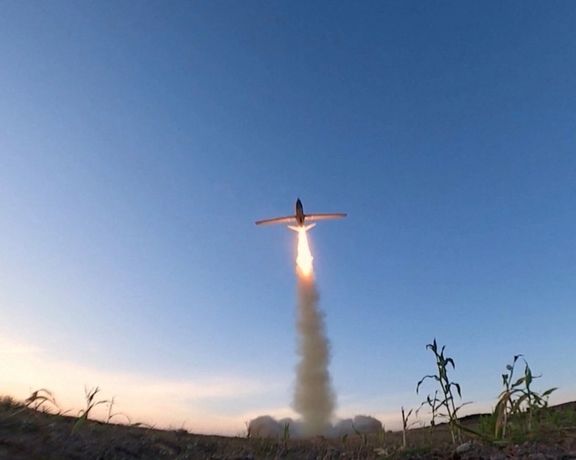
Yemen's Iran-backed Houthis launched attacks on Saudi energy facilities on Friday and the Saudi-led coalition said a facility of oil giant Aramco was hit.
The attack caused a fire at a petroleum products distribution station in Jeddah where two tanks were set ablaze, but there were no casualties.
A huge plume of black smoke could be seen rising over the Red Sea city where the Saudi Arabian Grand Prix is taking place this weekend, an eyewitness said.
Unverified videos shared on social media showed fire raging in oil tanks in an Aramco facility on the outskirts of Jeddah.
There was no immediate comment from Aramco or the energy ministry when contacted by Reuters.
The Iran-aligned Houthis who have been battling a coalition led by Saudi Arabia for seven years launched missiles on Aramco's facilities in Jeddah and drones at Ras Tanura and Rabigh refineries, the group's military spokesman said. He said they also targeted "vital facilities" in the capital Riyadh.
Saudi state media had earlier reported that a string of drone and rocket attacks by the Houthis was foiled by the coalition.
Saudi air defenses also intercepted and destroyed a ballistic rocket launched towards the port city of Jazan, which caused a "limited" fire to break out at an electricity distribution plant, state media reported.
Reporting by Reuters
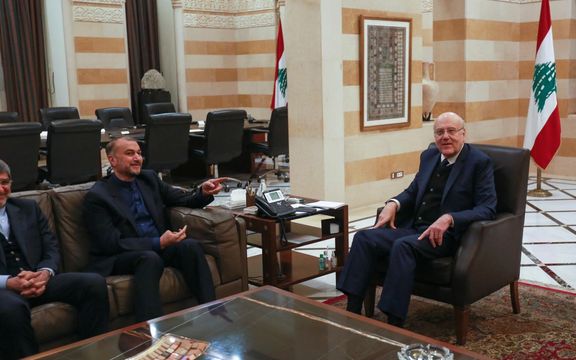
Hossein Amir-Abdollahian, Iran’s foreign minister, has said the whole Middle East would benefit from a renewed nuclear deal between Tehran and world powers.
But during a meeting with Lebanese Prime Minister Najib Mikati Thursday evening, Amir-Abdollahian said “we’ve not reached the final point on lifting sanctions yet.”
Opponents of reviving the 2015 nuclear deal and lifting US sanctions say that giving Iran tens of billions of dollars will enable it to finance its allies and militant proxies in the region.
The foreign minister continuing his trip on Friday, met political leaders from all Lebanese sects, including President Michel Aoun, a Maronite Christian, and the heads of the two main Shia parties, house speaker Nabih Berri of Amal, and Hassan Nasrallah, general secretary of Hezbollah.
In a news conference after meeting with his counterpart Abdallah Bou Habib, Amir-Abdollahian said Iran wanted “a good, strong and lasting agreement, but not at the cost of crossing its red lines.” The foreign minister said United States sanctions should be removed “in the maximum way.”
A recurrent theme of Amir-Abdollahian’s visit has been the need for detente with Saudi Arabia in line with President Ebrahim Raisi’s commitment to improved relations with Iran’s neighbors.
The Lebanese foreign minister welcomed détente between Iran and Saudi Arabia, according to a readout of the meeting provided by Iran’s Foreign Ministry. Saudi-Iran tensions have often played out in Lebanon, which has a substantial population of both Sunni and Shia Muslims. Riyadh in October broke off diplomatic relations with Beirut, and its influence has also diminished with the withdrawal from politics of Saad Hariri, leader of the Sunni Mustaqbal party and a Saudi citizen, in January.
Keeping Doors Open
Bou Habib, according to a readout from the Lebanese foreign ministry, said not only Lebanon would benefit from an improvement in Tehran-Riyadh relations, which would also “provide an opportunity to help advance intra-Yemeni dialogue and resolve the crisis in that country.”
In an interview with Al Mayadeen television Friday, Amir-Abdollahian reiterated that Iran was ready for a fifth round of talks with Saudi Arabis and was “working hard to keep the doors of dialogue open between the two countries.” Earlier this month Iran suspended bilateral contacts, facilitated by Iraq, after Saudi Arabia beheaded 81 men − including 41 Shia Saudi Shia, seven Yemenis and a Syrian − for “heinous crimes.”
In a meeting with cultural and political scholars and figures Friday, the Iranian foreign minister said Tehran was “ready to help Lebanon with medical services, medicine and medical equipment and other basic needs.” Amir-Abdollahian said Thursday Iran had offered to establish two 1,000-megawatt power stations in Lebanon to help with its chronic power crisis and connect its energy grid to Lebanon through Syria and Iraq.
Much of Lebanon has zero mains electricity, following decades of corruption and a financial crisis that erupted in late 2020, plunging 80 percent of the population into poverty. The crash followed the failure of post-war governments to control a spiraling debt financed by expatriate deposits in the Lebanese banking sector.
But the Iranian foreign minister’s offer of assistance comes as Tehran has often complained about shortage of medicine and medical supplies because of US sanctions. It also suffers from chronic electricity shortages partly because the capacity of its power stations is inadequate.
Iranian government-controlled media reporting on Amir-Abdollahian's meetings did not mention his offer of assistance, possibly because of popular resentment toward Islamic Republic's long-standing policy of providing financial and military resources to allies and proxies in the region.
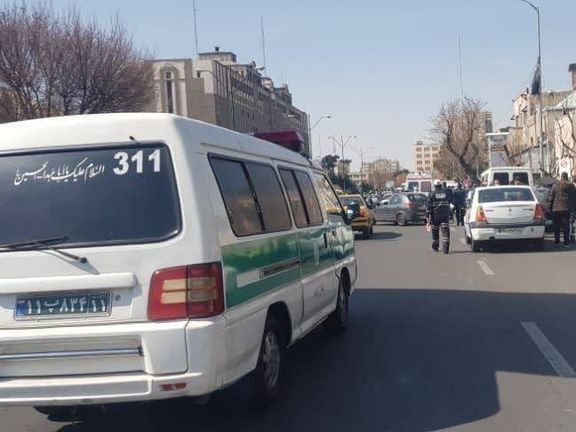
The deputy commander of Iran's police says the livelihood of their personnel is one of the main concerns of the Law Enforcement Force, amid high inflation.
Brigadier-General Qasem Rezaei told the ILNA news agency Friday that housing units and other facilities would be provided for officers to improve their living conditions. Rezaei also said that salaries paid to police were not in a par with the important services they provided.
Late in January, dozens of members of the armed forces and retirees protested in several Iranian cities over living and working conditions. Teachers, nurses, firefighters, prison guards, and employees of the judiciary have all held protest rallies or strikes to demand higher salaries.
Earlier in January, the spokesman for Iran's police said that while salaries for police officers had increased several times in the previous Iranian year (ending March 20, 2021), the government could not afford substantially higher salaries.
Akbar Shokat, head of the construction workers union, recently claimed prices had risen five to ten-fold since 2018, when the United States introduced ‘maximum pressure’ sanctions. The International Monetary Fund gives consumer price inflation of 34.6 percent in 2019, 36.4 percent in 2020, 39.3 percent in 2021 and projects 25.7 percent for 2022 – giving an overall increase to date of over 255 percent since 2018.
Iran Statistical Center and media, however, have reported higher inflation in 2021, especially for food items that increased more than 60 percent.
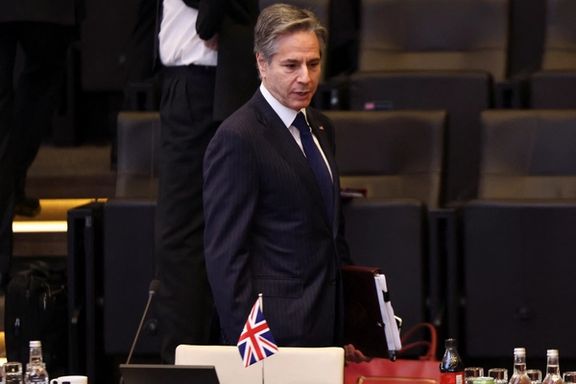
US Secretary of State Antony Blinken will travel to the Middle East and North Africa starting on Saturday in a trip that will be dominated by Russia's invasion of Ukraine and Iran.
Blinken is set to visit Israel, the West Bank, Morocco, and Algeria from Saturday to Wednesday, the State Department announced on Thursday, in a trip that will focus on Iran and the conflict in Ukraine.
"Both of those are going to be really at the top of the agenda," top US diplomat for Near Eastern affairs Yael Lempert told reporters.
Lempert said that Blinken will discuss Israel's role as mediator between Russia and Ukraine during his visit over the weekend.
"We appreciate Israel's role," Lempert said. Israeli Prime Minister Naftali Bennett has been trying to mediate an end to the Ukraine-Russia conflict.
She warned that the conflict will only continue to increase the price of basic staples in the Middle East and North Africa region as wheat prices rise.
Lempert said that while in Morocco, Blinken will also meet with Abu Dhabi Crown Prince Sheikh Mohammed bin Zayed Al Nahyan, during which the two will discuss a range of issues including Iran, Yemen, Syria, global energy markets and Ethiopia.
The Abraham accords, a U.S.-sponsored drive to improve relations between Israel and a range of Arab countries, will also be on the agenda, Lempert said.
"It's an opportune moment for this meeting. There's a lot to discuss," she said.
Report by Reuters